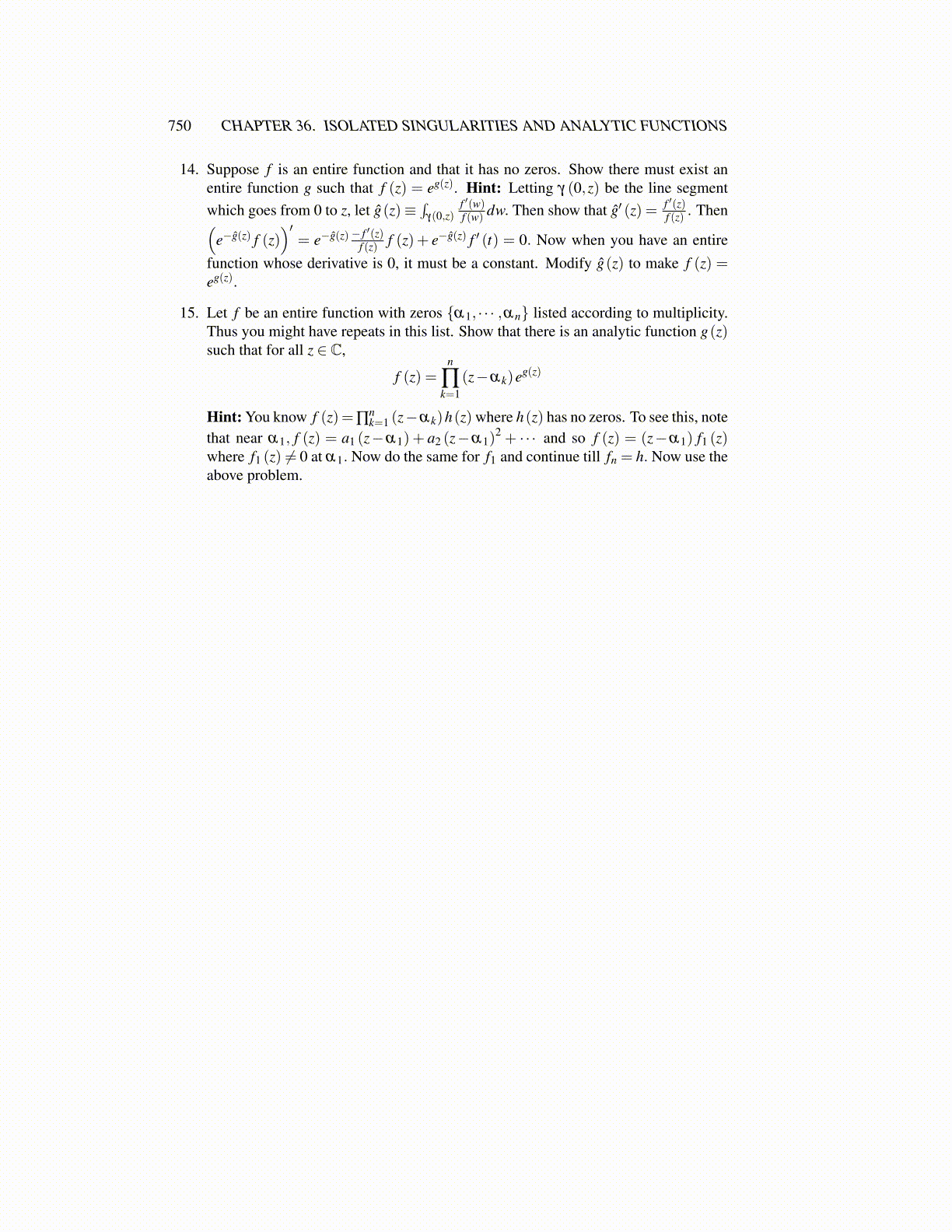
750 CHAPTER 36. ISOLATED SINGULARITIES AND ANALYTIC FUNCTIONS
14. Suppose f is an entire function and that it has no zeros. Show there must exist anentire function g such that f (z) = eg(z). Hint: Letting γ (0,z) be the line segmentwhich goes from 0 to z, let ĝ(z)≡
∫γ(0,z)
f ′(w)f (w) dw. Then show that ĝ′ (z) = f ′(z)
f (z) . Then(e−ĝ(z) f (z)
)′= e−ĝ(z)− f ′(z)
f (z) f (z)+ e−ĝ(z) f ′ (t) = 0. Now when you have an entirefunction whose derivative is 0, it must be a constant. Modify ĝ(z) to make f (z) =eg(z).
15. Let f be an entire function with zeros {α1, · · · ,αn} listed according to multiplicity.Thus you might have repeats in this list. Show that there is an analytic function g(z)such that for all z ∈ C,
f (z) =n
∏k=1
(z−αk)eg(z)
Hint: You know f (z)=∏nk=1 (z−αk)h(z) where h(z) has no zeros. To see this, note
that near α1, f (z) = a1 (z−α1) + a2 (z−α1)2 + · · · and so f (z) = (z−α1) f1 (z)
where f1 (z) ̸= 0 at α1. Now do the same for f1 and continue till fn = h. Now use theabove problem.